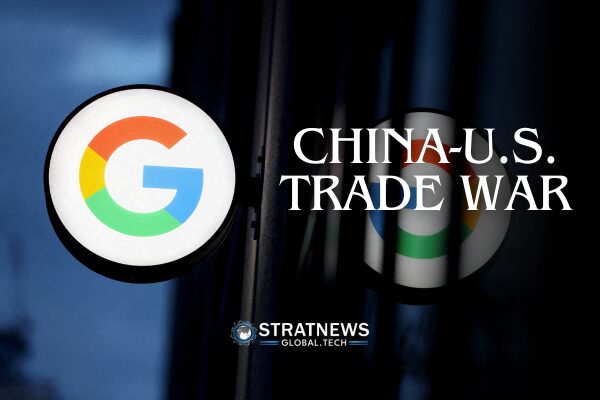China Targets U.S. Businesses with New Measures Amid Trade Tensions
China targets U.S. announcing a series of retaliatory actions against U.S. businesses, including Google, farm equipment manufacturers, and the owner of Calvin Klein. The move comes shortly after new U.S. tariffs on Chinese goods took effect, escalating tensions between the two largest economies.
Google Under Investigation for Alleged Monopoly Practices
China’s State Administration for Market Regulation (SAMR) stated that Google is suspected of violating the country’s anti-monopoly laws. An official investigation has been launched, but authorities have not disclosed specific details or allegations against the tech giant.
Google’s search engine and several other services remain blocked in China, and the country accounts for only about 1% of the company’s global revenue. Despite this, Google maintains partnerships with Chinese advertisers.
The company had briefly operated an artificial intelligence research centre in China, announced in 2017, but the project was discontinued two years later. Currently, Google does not conduct AI research in the country.
U.S. Companies Added to China’s “Unreliable Entity” List
China’s Commerce Ministry has placed PVH Corp, the parent company of Calvin Klein and Tommy Hilfiger, along with U.S. biotechnology firm Illumina, on its “unreliable entity” list. The ministry accused both firms of taking discriminatory actions against Chinese enterprises and harming their legitimate rights.
Companies added to this blacklist face potential fines, trade restrictions, and work permit revocations for foreign employees.
PVH was already under Chinese regulatory scrutiny over “improper” conduct linked to the Xinjiang region. Meanwhile, neither Google, PVH, nor Illumina responded to requests for comment outside of U.S. business hours.
New Tariffs on U.S. Farm Equipment and Automobiles
China also announced a 10% tariff on U.S. farm equipment imports, impacting companies like Caterpillar, Deere & Co, and AGCO. Additionally, some U.S.-manufactured trucks and large-engine sedans will be subject to the new duties.
Tesla’s Cybertruck, which has been gaining attention in China, could be affected if it is classified as an electric truck. China’s Ministry of Industry and Information Technology had briefly designated the Cybertruck as a “passenger car” in December before deleting the listing. If confirmed as a truck, Tesla could face a 10% tariff on future imports from its Texas factory.
Tesla has not yet commented on the situation. The new tariffs on U.S. products will take effect on February 10.
Rising Trade Restrictions Between China and the U.S.
The latest measures add to growing trade restrictions between China and the U.S., which have primarily focused on the technology sector under President Joe Biden’s administration. The U.S. has sought to limit China’s access to advanced semiconductors.
China has previously taken similar steps, including launching an anti-monopoly probe into Nvidia in December. Additionally, Intel products sold in China underwent a security review by a major Chinese industry group late last year.
Economic analysts suggest that these moves signal China’s willingness to push back against U.S. policies while keeping room for potential negotiations. Some of the newly announced tariffs could still be delayed or revoked before they take effect.
With inputs from Reuters


